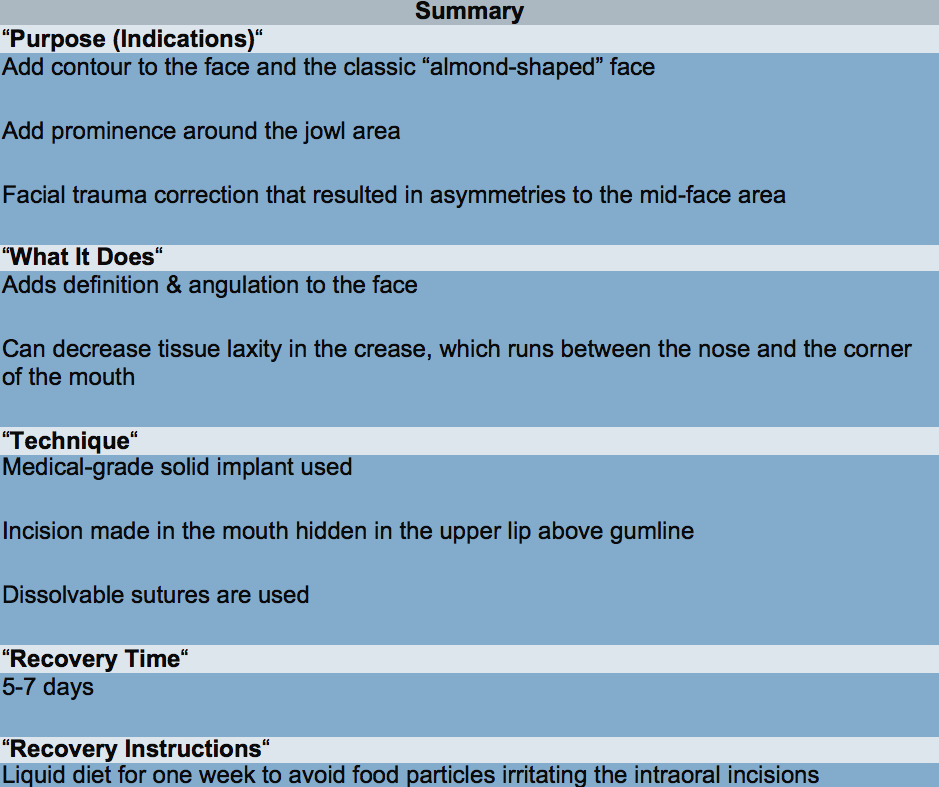
High cheekbones have long been considered a sign of beauty, which helps contribute to facial angulation and the classic “almond-shaped” face. Cheek implants can help add definition and angulation to the face, which helps improve facial harmony and symmetry. In addition, implants can decrease tissue laxity in the crease, which runs between the nose and the corner of the mouth [buccolabial fold]. Some individuals have flattened cheekbones, which provide no contour to the face. As one ages and develops a downward displacement of tissues in the jowl area, the lack of cheekbone prominence becomes even more pronounced. In these individuals, malar augmentation provides a pleasing aesthetic contour.
Sub-malar augmentation is used to enhance weakness in the mid-face area. This is frequently noted in men and women without substantial adipose [fatty] deposits in their facial area who seek a fuller look for their face. This is frequently seen in individuals who are long-distance runners.
Cheekbone augmentation may also be necessary in individuals who have suffered facial trauma and have asymmetries in the mid-face area, which can be corrected with augmentation.
Malar or sub-malar surgery is done under twilight anesthesia. A medical-grade solid implant is used to increase skin projection by supporting the soft tissues overlying the malar bone. This material is used in the construction of artificial heart valves, for reconstruction around the eyes, and for other surgical purposes. It has been used in thousands of cases and has a high record safety and satisfaction. After a short time has elapsed, the patient’s body tissues become incorporated into the implant and secure it into proper position, making it extremely difficult, if not impossible, to detect.
An incision is made in the mouth hidden in the upper lip above the gumline. There is no visible scar. Dissolvable sutures are used.
A flesh-covered dressing is applied externally to reduce the swelling and to hold the new implant in its proper position. The patient needs to stay on a liquid diet for approximately one week in order to avoid food particles irritating the intraoral incisions. The patient needs to sleep with head elevated for the first two weeks following surgery to minimize swelling. Cold compresses are applied to the cheekbone area for approximately 48 hours after surgery.
The tape dressing is removed on the fifth to seventh day following surgery. Significant improvement is usually noted at that time. Patients realize that there is going to be some swelling and decreases sensation over the cheekbone area, which typically resolves itself in the coming days.
Although rare, the patient must accept the fact that, as with any implant, there is the potential for infection, rejection, reaction, irritation, paresthesia, swelling, bruising, and asymmetry. However, this procedure carries a high success rate and in most cases, significantly accentuates facial harmony.


Schedule a Consultation
*Communication is not secure. Contacting the practice does not establish a physician/ patient relationship.